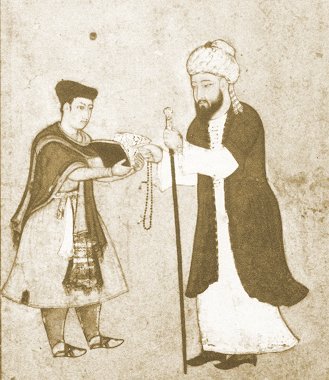Hafiz: Until
According to the introduction in The Gift, Meher Baba saw the poems of Hafiz as a complete teaching in themselves. And I don't find any reason to disagree.
Until
I think we are frightened every
Moment of our lives
Until we
Know
Him.
- Hafiz, from The Gift translated by Daniel Ladinsky.
I think we are frightened every
Moment of our lives
Until we
Know
Him.
- Hafiz, from The Gift translated by Daniel Ladinsky.
When our center of gravity, our main identifiaction, is with the seen, with our human self, there is bound to be a sense of unease, dissatisfaction and fear.
This is a natural effect of filtering the world into I and Other.
The only remedy is to shift the center of gravity, the sense of I, into the seeing itself, into pure awareness.
And then to realize the absence of any I anywhere, in the seing and in the seen.
